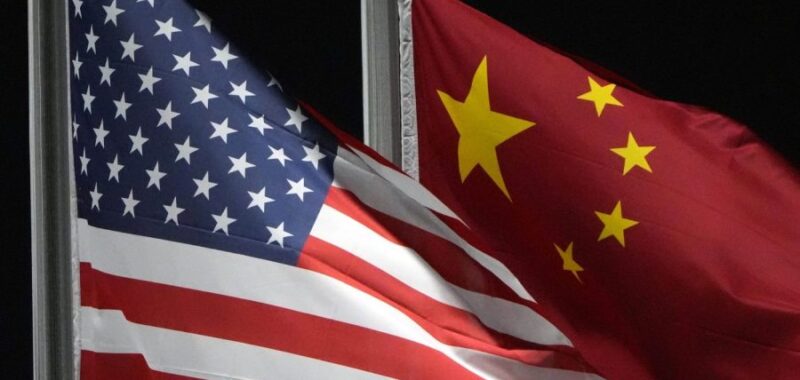
Businesses are worried about the possible cancellation of a tax treaty between the U.S. and China as Treasury Secretary Scott Bessent gets ready for trade talks in Switzerland.
U.S. businesses operating in China could have a hard time collecting profits and will have to pay higher taxes if the treaty is done away with or scaled back, business groups argue.
“American companies could face arbitrary Chinese tax audits and investigations, higher tax burdens, and greater costs and complexities in repatriating profits,” U.S.-China Business Council president Sean Stein wrote to Bessent in a May 1 letter. “These effects would be felt across the board, potentially impacting nearly every American company that operates in China.”
In the letter, Stein requested a meeting with Treasury staff. A representative for the U.S.-China Business Council said Wednesday that there were no developments regarding the letter but that the Treasury had confirmed its receipt.
In its Feb. 21 America First Investment Policy, the White House said it was reviewing whether or not to suspend the tax treaty in order to “reduce incentives” for Americans “to invest in our foreign adversaries.”
The income tax treaty can be terminated by either the U.S. or China by giving notice through diplomatic channels, accountancy KPMG wrote in an April analysis of the review.
“The United States would be required to give such notice by June 30, 2025, if it intends to terminate the treaty with effect from January 1, 2026,” KPMG accountants wrote last month.
The Treasury Department did not immediately respond to an inquiry from The Hill about the status of the review.
Bessent is scheduled to head to Switzerland Thursday, where he will meet with Chinese Vice Premier He Lifeng, the top Chinese trade negotiator. The Treasury described He as the “lead representative on economic matters” in a Tuesday statement.
“China firmly opposes the U.S.’s tariff hikes. This position remains unchanged. Meanwhile, as we’ve stressed many times before, China is open to dialogue,” Chinese Foreign Ministry spokesperson Lin Jian said in a Wednesday press conference.
China expert and translator Bill Bishop remarked Tuesday on the significance of China’s willingness to meet with the U.S. prior to any tariff relief.
“[It is] interesting if the PRC agrees to meet without the U.S. first dropping tariffs, as they had been insisting until last week,” he wrote in a Tuesday commentary. Chinese broadcaster CCTV’s Yuyuan Tantian reported that the U.S. “proactively” reached out to China about the tariffs.
The income tax treaty, along with China’s admission to the U.S.-led World Trade Organization (WTO) and China’s accompanying designation as a “most favored nation” in U.S. trade law have contributed to U.S. “deindustrialization,” the White House said in February.
The review is part of a broader effort by the administration to increase U.S. domestic production and limit foreign trade, goals that are being pursued with century-high U.S. tariff rates that include triple-digit tariffs on China.
Economic pressure on China, which started during Trump’s first term, persisted through the Biden administration and has escalated in Trump’s second term.
“The postulate that deep trade liberalization would help America export goods, not jobs and capacity, was a promise made but not kept,” Biden’s National Security Adviser Jake Sullivan said in 2023.

